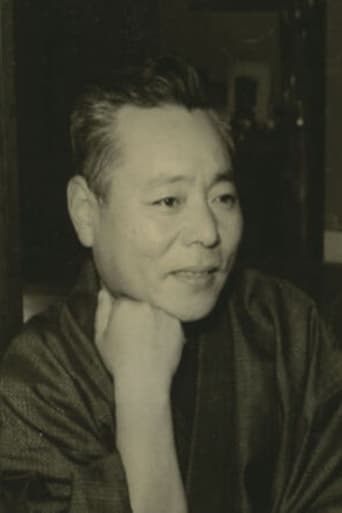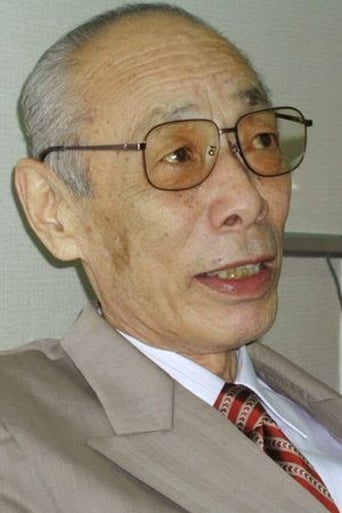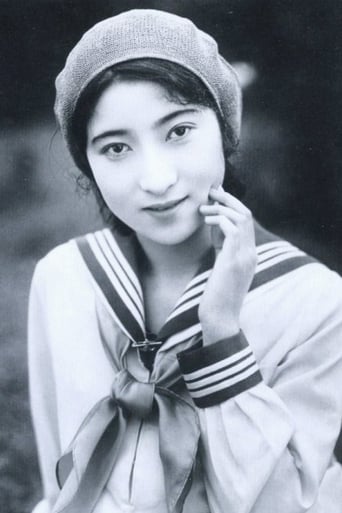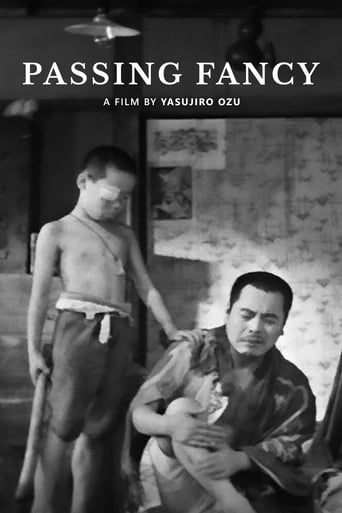
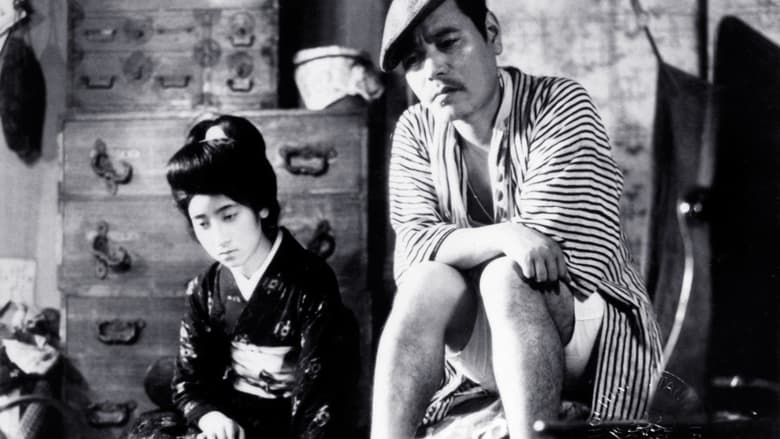
Passing Fancy (1933)
In Depression-era Tokyo, a struggling middle-aged single father with a young son comes across a homeless young lady and convinces a bar owner to take her in.
Watch Trailer
Cast


Reviews
Very best movie i ever watch
Good concept, poorly executed.
This story has more twists and turns than a second-rate soap opera.
A great movie, one of the best of this year. There was a bit of confusion at one point in the plot, but nothing serious.
In Passing Fancy we can see Yasujiro Ozu edging, however reluctantly, toward sound. For a silent movie it has an extraordinary number of intertitles, reflecting a stronger reliance on dialogue to carry the story and the relationships of the characters. Ozu even departs from convention on occasion to show a title card before the character has spoken the line. The film also shows more of the development of Ozu's personal style as a director than some of his contemporary silent films do: There's a greater reliance on low-angle camera-work, his so- called "tatami shots," and a more frequent use of shots of streets and buildings that don't necessarily carry information about the plot and characters but serve as something like "chapter breaks" in the narrative. But film technique aside, Passing Fancy would be remembered as one of Ozu's most charming early films. Takeshi Sakamoto plays Kihachi -- a character name the actor would retain in other films by Ozu, including A Story of Floating Weeds (1934) and An Inn in Tokyo (1935). The several characters are discrete from one another, although the Kihachi in Passing Fancy bears some resemblance to the one in An Inn in Tokyo in that they are both single parents of a son played by the marvelous child actor Tomio Aoki. (If you're not confused yet, let me also add that in Passing Fancy Aoki is billed as "Tokkan Kozo," the title of a 1929 Ozu short film based on O. Henry's "The Ransom of Red Chief" in which Aoki appeared. Oh, and that in Passing Fancy, the character is named Tomio.) Anyway, Kihachi and Tomio share rundown lodgings with Jiro (Den Obinata), who works with Kihachi in a brewery. Tomio is a good student, and he's a bit embarrassed by his illiterate and occasionally drunken father. One night, Kihachi and Jiro encounter a young woman, Harue (Nobuko Fushimi), who has just been fired from her job and is looking for a place to stay. Jiro is suspicious that Harue is "no better than she ought to be," as the saying goes, but Kihachi is smitten with her and arranges for her to live with and work for Otome (Choko Iida), a woman who owns a neighborhood bar-restaurant. Kihachi begins to spruce himself up to woo Harue, but she's more attracted to the younger and handsomer Jiro. Eventually, Otome persuades Kihachi that he's too old for Harue and that he should try to get Jiro to return her affections. Then Tomio falls ill and, following the familiar sick-child motif of many Japanese films in the 1930s, Kihachi is pressed to find a way to pay the doctor bills. Ozu's generous humor and genuine affection for his characters suffuses the film, and the splendid rapport of Sakamoto and Aoki as actors provides a special insight into the often volatile father-son relationship. There's a wonderful scene, for example, in which Kihachi slaps Tomio once too often and the boy turns around and begins to pummel his father, who submits, resulting in a deeper understanding between them. The screenplay is by Tadao Ikeda, from a story by Ozu under his pseudonym James Maki. The cinematographers are Hideo Shigehara and Shojiro Sugimoto. (charlesmatthews.blogspot.com)
This rarely screened silent gem shows Ozu rather early in his career. It presents the story of a poor factory worker trying to raise his son despite many obstacles and hardships. The biggest obstacle of all is the father himself who, though well intentioned and charismatic, makes one mistake in judgment after another. The father manages to get through all his many trials and tribulations thanks to the support (not always warmly) given by his friends and neighbors.The most interesting thing for me about Passing Fancy is the way it uses a quite hard boiled, gritty realism and coarsely drawn, boorish characters to elicit very tender feelings in the viewer. The mixture of humor and pathos that advances the plot would be impossible for lesser directors or a weak cast to pull off, but in the hands of this troupe the whole enterprise succeeds wonderfully. Somehow, you may find yourself tempted to cry despite the near-total absence of sentimentality.The acting is excellent all around, but the young boy deserves special mention. To Japanese, particularly at the time, the boy's behavior must have seemed shockingly inappropriate and unfilial, but his antics and facial expressions are very funny.It is hard to believe that this is one of three movies that Ozu directed in 1933 alone. If the opportunity arises to see this movie, make every effort to see it.
Another early Ozu where family ties - severely tested but affirmed - steer the world away from havoc and into good. Another early Ozu that documents Japanese society being pushed through the wringer of Western influence, cinematically reflected with Chaplinesque beats: the father is a lazy factory worker and no good man-about-town, in stark contrast to the meek, corporate executive father in I Was Born But.., and once more the stubborn son has to live with the shame.This go round and in comparison to the above film, the intended seduction of suburban life is less effective. The innocence of childhood is less the fulcrum of discovery of how the world works, and more a counterpoint to ordinary drama; thwarted love, strained friendship, high-minded sacrifice in the end that seduces noble, better persons out of everyone.Everything turns out the way it does for a reason, the film whimsically asserts. Why is sea water salty? But of course for us to salt salmon with.It is good and was awarded that year with a Kinema Jumpo beating films by future rivals Mizoguchi and Naruse. I assume it won for the denouement of selfless humanity - inspirationally miraculous and accompanied by fireworks in the sky - that must have echoed desirably at tumultuous times such as those, but there were more interesting things afoot in Japanese cinema of the time.
Yasujiro Ozu is an extremely well respected film director. While not as famous today as his countryman, Kurosawa, among those who are fans of Japanese cinema, he is practically a god. While I have loved many of his films due to their amazing artistry and great direction, I also think that overall, many of his films are a tad overrated. In other words, because SOME films are near-perfect classics (such as both versions of FLOATING WEEDS or my favorite, LATE SPRING), people often tend to see ALL of his films as having the same quality. This is true of all the great directors, as there are a devoted group of followers that see every film as great--even if the films have obvious flaws or were made before the directors learned and perfected their craft.I mention all this because although PASSING FANCY is a very good film, it's far from great--despite some amazingly positive reviews. While it's true that the Japanese film industry didn't switch to sound until very, very late compared to Western countries, shouldn't this be considered when giving out 10s to these silents? In other words, shouldn't technical merit be considered when reviewing a film? As such, I'd have to knock a point off the film. In addition, the film's plot is amazingly scant and a bit too ordinary.Now in Ozu's defense, I must say that when it comes to the ordinary, nobody does it better. Here we have the story of a hard-drinking blue collar man and his young son and there's not a lot of excitement or action...but it STILL engages the audience due to his nice touch and excellent acting. In addition, the ending is very sweet and well done--even if nothing is exactly resolved in this story of very mundane individuals.Well done and worth seeing but not exactly magical.


